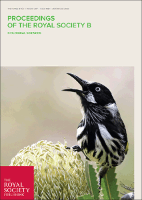
PROCEEDINGS OF THE ROYAL SOCIETY B-BIOLOGICAL SCIENCES
Scope & Guideline
Advancing Knowledge in Biological Sciences
Introduction
Aims and Scopes
- Evolutionary Biology:
The journal consistently publishes studies on evolutionary mechanisms, speciation processes, and phylogenetics, examining how species adapt and evolve over time. - Ecological Interactions:
Research exploring biotic interactions, including predator-prey dynamics, mutualism, and competition, is a core focus, highlighting the complexities of ecosystems. - Behavioural Ecology:
Papers frequently investigate the behaviour of organisms in their natural environments, examining how behaviour influences survival, reproduction, and social structures. - Conservation Biology:
The journal addresses issues related to conservation, including the impacts of anthropogenic changes on biodiversity, species conservation strategies, and ecosystem management. - Physiological Ecology:
Physiological responses to environmental changes, including temperature effects on organismal function and adaptations to stressors, are prevalent topics in the journal. - Genomic and Molecular Studies:
There is a significant emphasis on genomic and molecular analyses, providing insights into the genetic basis of traits and evolutionary adaptations. - Microbial Ecology:
The role of microorganisms in ecological processes and their interactions with hosts are increasingly highlighted, reflecting the importance of microbiomes in health and ecosystems.
Trending and Emerging
- Climate Change Effects:
Research addressing the impact of climate change on species distribution, behaviour, and ecosystem dynamics is increasingly prevalent, reflecting urgent ecological concerns. - Microbiome Research:
Studies focusing on the role of microbiomes in health, disease, and ecological interactions are gaining momentum, showcasing the importance of microbial communities. - Conservation Genomics:
The application of genomic tools in conservation efforts to understand genetic diversity, resilience, and adaptation mechanisms is an emerging theme. - Anthropogenic Impacts:
Research examining the effects of human activities on ecosystems, biodiversity, and species interactions is increasingly highlighted, reflecting societal interests in sustainability. - Integrative Approaches:
There is a trend towards interdisciplinary research that combines genetics, ecology, and evolutionary biology to address complex biological questions. - Social Behaviour Studies:
Papers exploring the social dynamics and cooperative behaviours in various species are increasingly common, reflecting a growing interest in sociality across taxa.
Declining or Waning
- Traditional Morphological Studies:
Papers focused solely on morphological descriptions without integrating ecological or evolutionary contexts appear to be waning, as interdisciplinary approaches gain traction. - Historical Ecology:
Research that primarily emphasizes historical ecological perspectives without contemporary relevance may be declining, as there is a growing emphasis on applied ecology and conservation. - Single-species Studies:
There is a noticeable decrease in studies focusing solely on individual species without considering broader ecological interactions, as more researchers adopt community or ecosystem-level approaches. - Laboratory-Based Studies:
Research conducted in controlled laboratory settings without clear ecological implications is becoming less common, with a stronger push towards field-based and integrative studies. - Paleoecological Studies:
Although still relevant, studies focused exclusively on paleobiology and ancient ecosystems are seeing reduced frequency, possibly due to a shift towards more contemporary ecological challenges.
Similar Journals

PERIODICUM BIOLOGORUM
Pioneering Discoveries in Biochemistry and GeneticsPERIODICUM BIOLOGORUM is a well-established interdisciplinary journal published in Croatia that focuses on advancing the fields of agricultural and biological sciences, biochemistry, genetics, and molecular biology, along with general medicine. With its roots dating back to 1980, the journal has been an essential platform for the dissemination of original research, reviews, and theoretical studies, fostering collaboration and dialogue among researchers within these diverse areas. While currently holding a Q4 quartile ranking in several categories, including agricultural and biological sciences, biochemistry, and general medicine, it provides a significant opportunity for authors seeking to contribute to the body of knowledge in these sectors. Although Open Access options are not available, the journal's rich history and commitment to quality scholarship make it a valuable resource for professionals, researchers, and students alike, aiming to stay informed about current trends and advancements in biological research and its applications.
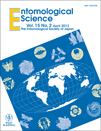
ENTOMOLOGICAL SCIENCE
Bridging Entomology and Ecological UnderstandingENTOMOLOGICAL SCIENCE, published by WILEY, stands at the forefront of research in the field of entomology, focusing on the intricate relationships between insects and their environments. With its ISSN 1343-8786 and E-ISSN 1479-8298, this esteemed journal, based in the United States, has been serving the scientific community since 2005. As a Q3 journal in both Ecology, Evolution, Behavior and Systematics and Insect Science, it presents vital peer-reviewed articles that advance our understanding of insects and their ecosystems. With a Scopus rank of 85/181 in Insect Science, the journal not only reinforces the importance of insect study but also serves as an essential resource for researchers and professionals seeking to explore and disseminate knowledge in this dynamic field. Although it does not offer Open Access options, its scholarly contributions are invaluable for those invested in ecological research and entomological perspectives—making it a must-read for aspiring and established scientists alike.

FUNGAL GENETICS AND BIOLOGY
Unlocking the Secrets of Fungal BiologyFungal Genetics and Biology is a leading peer-reviewed journal published by Academic Press Inc, Elsevier Science, dedicated to advancing the understanding of fungi through innovative genetic and biological research. Since its inception in 1996, this journal has served as a vital platform for the dissemination of critical findings in the fields of Genetics and Microbiology, maintaining a distinguished Q2 category ranking in both disciplines as of 2023. With an ISSN of 1087-1845 and an E-ISSN of 1096-0937, the journal emphasizes the intersection of genetics and molecular biology to explore fundamental questions related to fungal biology that are of paramount importance to various applications in biotechnology, medicine, and environmental science. Researchers, professionals, and students alike will find this journal invaluable as it not only covers current trends and breakthroughs but also encourages collaborative efforts across the scientific community. Fungal Genetics and Biology continues to shape the future of fungal research well into 2024 and beyond, offering rich insights and open access options for a global audience.
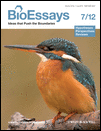
BIOESSAYS
Shaping Tomorrow’s Science Through Innovative ResearchBIOESSAYS, published by WILEY, is a leading academic journal dedicated to the dynamic fields of biochemistry, genetics, and molecular biology. With an impressive impact factor and recognized as a Q1 journal in its category for 2023, it ranks 49 out of 221 in the Scopus database, placing it within the 78th percentile among its peers. Since its inception in 1984, BIOESSAYS has served as a vital platform for researchers, professionals, and students, facilitating the dissemination of pivotal findings, innovative theories, and review articles that shape the current understanding of biological sciences. Although it does not offer open access, the journal remains key for those seeking to stay at the forefront of scientific discovery and discussion within this ever-evolving discipline. With its commitment to high-quality, peer-reviewed content, BIOESSAYS continues to influence future research directions and academic discourse.

ECOLOGY LETTERS
Shaping the future of ecology with impactful findings.ECOLOGY LETTERS, published by Wiley, is a premier journal dedicated to advancing the field of ecology and related disciplines. Renowned for its rigorous peer-review process and impactful research contributions, the journal boasts an impressive Scopus Rank of #13 out of 721 in the category of Agricultural and Biological Sciences, positioning it in the 98th percentile globally. With a Q1 rating in the 2023 quartile rankings for Ecology, Evolution, Behavior and Systematics, it serves as an essential platform for ecologists and evolutionary biologists to disseminate cutting-edge research findings from 1998 to 2024. Although not an open-access journal, ECOLOGY LETTERS actively contributes to the global ecology discourse, making it a critical resource for researchers, professionals, and students dedicated to understanding complex ecological interactions and evolutionary processes.
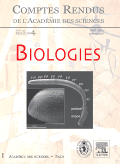
COMPTES RENDUS BIOLOGIES
Empowering Scientific Dialogue and CollaborationCOMPTES RENDUS BIOLOGIES, published by the esteemed Académie des Sciences, is a prominent journal based in France that contributes significantly to the fields of Agricultural and Biological Sciences, Biochemistry, Genetics and Molecular Biology, as well as Immunology and Microbiology. With a notable Q3 ranking in several categories as of 2023, this journal serves as an essential platform for disseminating groundbreaking research and advancements in these disciplines. Access is currently available under open access options, enhancing the reach and accessibility of its published findings. The journal has been in continuous publication since 1959, with a current focus extending to 2024, ensuring that it remains at the forefront of scientific communication. With its diverse scope and commitment to quality research, COMPTES RENDUS BIOLOGIES plays a crucial role in fostering dialogue and collaboration among researchers, professionals, and students who are dedicated to understanding and addressing complex biological questions.
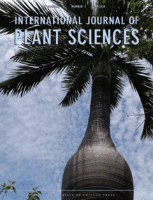
INTERNATIONAL JOURNAL OF PLANT SCIENCES
Pioneering insights in plant sciences since 1983.The INTERNATIONAL JOURNAL OF PLANT SCIENCES, published by UNIV CHICAGO PRESS, is a leading journal dedicated to advancing knowledge in the fields of plant sciences and ecology. With an ISSN of 1058-5893 and an E-ISSN of 1537-5315, this journal has been a prominent platform for groundbreaking research since its establishment, featuring works from 1983 to present. It holds an impressive Q2 ranking in both Ecology, Evolution, Behavior and Systematics and Plant Science, reflecting its reputable standing within the academic community. The journal is well-regarded for its rigorous peer-review process and commitment to high-quality publication standards, making it a favored choice for researchers, students, and professionals eager to engage with the latest findings and innovative methodologies in plant research. While it does not currently operate under an Open Access model, the journal provides ample access options for institutions and individuals keen to explore its curated content. By presenting diverse studies that blend theoretical and practical insights, the INTERNATIONAL JOURNAL OF PLANT SCIENCES plays a critical role in fostering interdisciplinary dialogue and advancing the frontiers of plant science research.
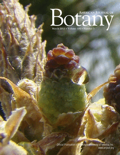
AMERICAN JOURNAL OF BOTANY
Exploring the Wonders of Botany and BeyondAmerican Journal of Botany, an esteemed publication by Wiley, serves as a pivotal platform for the dissemination of groundbreaking research in the fields of botany, ecology, plant science, and genetics. With an illustrious history dating back to 1946, this journal holds a prestigious position in the academic community, evident through its Q1 ranking in both Ecology, Evolution, Behavior and Systematics and Plant Science, alongside a Q2 ranking in Genetics as of 2023. The journal maintains a competitive edge, ranked 159th in Ecology and Evolution and 124th in Plant Science according to Scopus metrics, underscoring its impact within the research landscape. Though traditionally not an open-access journal, it continues to provide valuable insights and advancements in botanical science, making it essential reading for researchers, professionals, and students dedicated to understanding and exploring the complexities of plant life. The journal's commitment to high-quality research ensures that it remains a cornerstone in the pursuit of knowledge in botany and related disciplines.
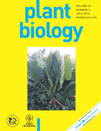
PLANT BIOLOGY
Advancing the Frontiers of Plant SciencePLANT BIOLOGY is a prestigious academic journal published by Wiley, dedicated to advancing knowledge in the fields of plant science, ecology, and evolutionary biology. With an impressive impact factor and ranking in the Q1 category for Ecology, Evolution, Behavior and Systematics, and Plant Science as of 2023, it stands at the forefront of research dissemination. The journal encompasses a broad scope of plant biology topics, providing a critical platform for researchers to share innovative findings and foster interdisciplinary collaboration. Available in both print (ISSN: 1435-8603) and online formats (E-ISSN: 1438-8677), it ensures accessibility through open access options. As a crucial resource for professionals, researchers, and students alike, PLANT BIOLOGY cultivates a deeper understanding of plant systems and their ecological significance, making it an essential addition to the library of anyone dedicated to the study of biology and the environment.
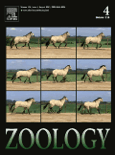
ZOOLOGY
Unlocking the mysteries of the animal kingdom.ZOOLOGY, an esteemed journal published by Elsevier GmbH, stands at the forefront of research in the Animal Science and Zoology fields. With a notable impact factor and recognized as a Q1 category journal in its discipline, ZOOLOGY is highly regarded among researchers, ranking #98 out of 490 in Scopus rankings. Founded in 1994 and continuing through to 2024, the journal aims to publish cutting-edge, peer-reviewed articles that contribute significantly to the understanding of zoological sciences. Based in Munich, Germany, ZOOLOGY provides both subscription and open access options, ensuring that influential research reaches a wider audience. It serves as an essential platform for disseminating innovative findings, connecting scholars globally, and fostering interdisciplinary collaboration to advance zoological knowledge.